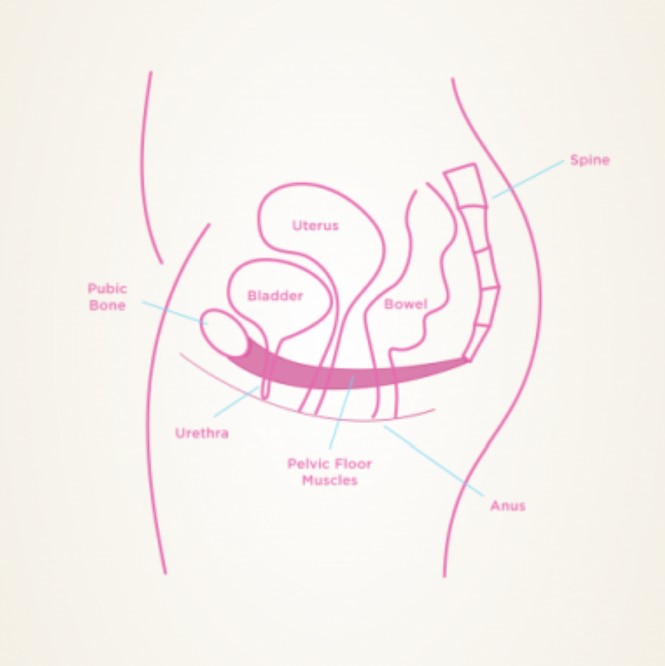
What is your pelvic floor?
The pelvic floor consists of a sling of muscles and ligaments that stretches from your pubic bone to the tailbone. These tissues form the base of the pelvis or “floor”.
What do the pelvic floor muscles do?
Your pelvic floor acts like a trampoline or hammock. The muscles work together to support your internal organs (bladder, bowel & uterus in women) and (bladder & bowel in men), with support, these muscles allow for continence to be maintained, they also allow you to void when necessary, have sexual intercourse and give birth. The pelvic floor enhances stability of the pelvis alongside other structures. When these muscles are strong and working adequately, they act to prevent incontinence and prolapse in both men and women.
How do you know if you have a weak pelvic floor?
When the pelvic floor muscles become weak, you may experience some of the following symptoms;
- incontinence of the bladder and or bowel
- prolapse (reduced pelvic floor support for internal organs)
- increased flatulence
- sexual organ dysfunction: erectile dysfunction/ reduction in vaginal sensation
Common causes of pelvic floor weakness?
- constipation or constant straining and bearing down
- constantly lifting heavy load or strong repetitive loading in sport such as gymnastics and running- particularly when you are trained or prepared for such activity.
- pregnancy and childbirth.
- chronic coughing
- menopause
- prostate surgery
- gynaecological surgeries
- genetic factors
How do you know if you have an overactive pelvic floor?
The pelvic floor is also prone to over-activation which may lead to the following symptoms;
- pelvic pain
- pain during intercourse
- difficulty going to the toilet
Causes of pelvic floor over activity?
- chronic pain and abdominal guarding
- endometriosis
- chronic infections
- previous history of trauma
- overuse and over training of the pelvic floor muscles
If you are experiencing any of the above symptoms and feel that they are impacting your quality of life, know you are not alone. Our Physiotherapist specializes in women’s health and together with our Exercise Physiologist, we can work with you to address the underlying cause of your symptoms and regain control of your pelvic floor.
Women’s Heath Physiotherapist: Kaye Kerr B.Phty. Dip.Ac. and Nicole Thomson B.Phty
Women’s Health Exercise Physiologist: Emma Perry B.Ex Sc.
